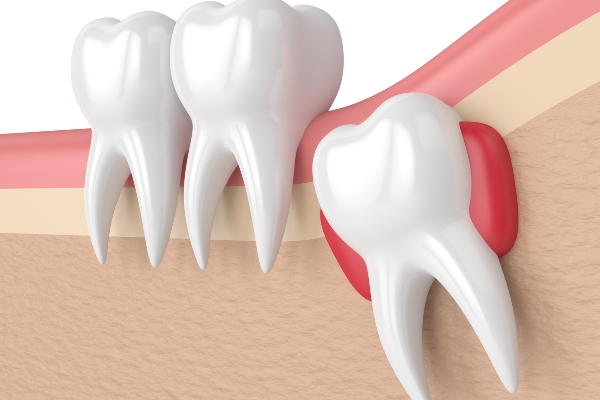Wisdom tooth pain can be an excruciating experience, disrupting daily life and causing discomfort that ranges from mild to severe. Understanding the root causes of this pain is crucial for seeking timely intervention, often in the form of emergency tooth extraction. In this comprehensive exploration, we delve into the reasons behind wisdom tooth pain, the signs that indicate the need for urgent action, and the relief that can be obtained through emergency tooth extraction.
Table of Contents
Understanding Wisdom Teeth:
Wisdom teeth, also known as third molars, typically emerge in the late teens or early twenties. While not everyone experiences issues with these teeth, a significant number of individuals encounter complications that lead to pain and discomfort. The primary reasons behind wisdom tooth pain include impaction, infection, and overcrowding.
Impaction:
One of the most common causes of wisdom tooth pain is impaction. When there is not enough space for the wisdom tooth to fully emerge, it may become impacted, meaning it is unable to break through the gum line completely. This can result in intense pain as the tooth exerts pressure on surrounding teeth and tissues.
Impacted wisdom teeth can cause a variety of issues, such as swelling, redness, and difficulty opening the mouth. The pain may be persistent or intermittent, and it often intensifies during activities such as chewing or speaking.
Infection:
Another source of wisdom tooth pain is infection. When a wisdom tooth is partially erupted, it creates an opening for bacteria to enter and cause an infection. This can lead to swelling, throbbing pain, and, in severe cases, the formation of an abscess.
Infections related to wisdom teeth can spread to neighboring teeth and even the jawbone if left untreated. The pain associated with an infected wisdom tooth is often relentless and may be accompanied by other symptoms like bad breath, a foul taste in the mouth, and difficulty swallowing.
Overcrowding:
Wisdom teeth may also contribute to pain when there is not enough space for them in the dental arch. Overcrowding can cause the wisdom teeth to push against existing teeth, leading to misalignment and discomfort. This can result in chronic pain and may necessitate the removal of the wisdom teeth to alleviate the pressure and restore proper alignment.
Signs of Wisdom Tooth Pain:
Recognizing the signs of wisdom tooth pain is crucial for seeking timely intervention. Some common indicators include:
Pain and Discomfort:
Persistent or intermittent pain in the back of the mouth, often radiating to the jaw or ear.
Swelling:
Swelling of the gums in the back of the mouth, accompanied by redness.
Difficulty Opening the Mouth:
Limited jaw movement, especially when attempting to eat or speak.
Bad Breath and Foul Taste:
The presence of infection may cause bad breath and a foul taste in the mouth.
Headaches:
Wisdom tooth pain can sometimes manifest as headaches, particularly in the temporal region.
Emergency Tooth Extraction:
When wisdom tooth pain becomes unbearable or is accompanied by signs of infection, emergency tooth extraction may be the recommended course of action. Emergency extraction is often performed to alleviate pain, prevent the spread of infection, and address complications associated with impacted or overcrowded wisdom teeth.
Prompt Pain Relief:
Emergency tooth extraction provides prompt relief from wisdom tooth pain, offering patients a quick solution to their discomfort.
Prevention of Complications:
Extracting an impacted or infected wisdom tooth helps prevent the escalation of complications, such as the spread of infection to neighboring teeth or the jawbone.
Improved Oral Health:
Removing problematic wisdom teeth contributes to overall oral health, reducing the risk of misalignment, overcrowding, and other issues.
Preventive Measure:
In some cases, emergency tooth extraction is performed preventively, especially if a dentist anticipates future issues with wisdom teeth based on X-rays and clinical examinations.
The Extraction Process:
Emergency tooth extraction is a dental procedure performed by a qualified oral surgeon or dentist. The process involves several steps:
Assessment:
The dentist conducts a thorough examination, often including X-rays, to assess the position of the wisdom tooth and determine the extent of the issue.
Anesthesia:
Local or general anesthesia is administered to ensure the patient is comfortable and pain-free during the extraction.
Extraction:
Using specialized instruments, the dentist carefully extracts the wisdom tooth. In cases of impaction, a small incision may be made in the gum to access the tooth.
Closure:
The extraction site is cleaned, and stitches may be used to close the incision if necessary.
Post-Extraction Care:
Patients are provided with post-extraction care instructions to promote proper healing and minimize the risk of complications.
Recovery and Aftercare:
Recovery from emergency tooth extraction is typically smooth, but following aftercare instructions is essential for optimal healing. Patients are advised to:
Take Prescribed Medications:
Pain relievers and antibiotics may be prescribed to manage pain and prevent infection.
Follow a Soft Diet:
Eating soft foods for a few days helps prevent irritation to the extraction site.
Avoid Certain Activities:
Patients are generally advised to refrain from smoking, vigorous rinsing, and strenuous activities for a specified period to facilitate healing.
Attend Follow-Up Appointments:
Follow-up appointments with the dentist allow for the monitoring of healing progress and the removal of stitches if used.
Conclusion:
Wisdom tooth pain can significantly impact an individual’s quality of life, but understanding the causes and seeking timely intervention can lead to effective relief. Emergency tooth extraction, when necessary, offers a swift and efficient solution to alleviate pain, prevent complications, and promote overall oral health. If you are experiencing wisdom tooth pain or suspect complications with your wisdom teeth, consult with a dentist promptly to explore the best course of action for your situation. Your proactive approach can make all the difference in maintaining a healthy and pain-free smile.

